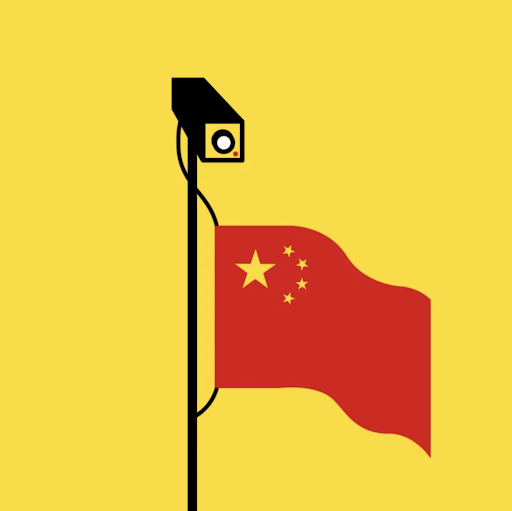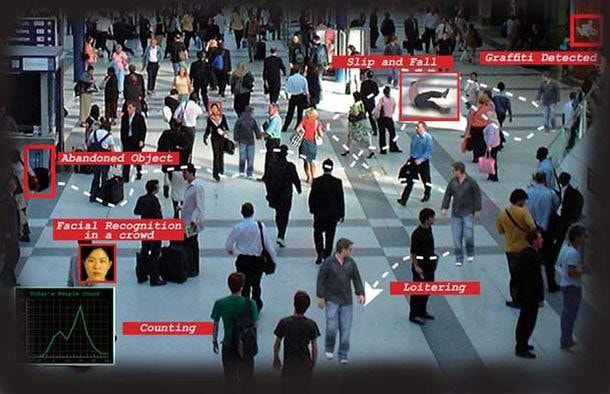|
by Priya Bhanot Edited by Jonah Boardman This article is the second part to a series on China’s Social Credit System. Part one can be found here. Despite China’s Social Credit System -- a new initiative to socially rank China’s citizens using surveillance -- revolutionizing the relationship between government and privacy, it still mostly remains an academic topic of discussion. Within these academic groups, though, there is a lot of controversy over how to interpret it. Although at first the SCS may seem like a shocking new initiative that came out of nowhere, scholars of Chinese government saw it coming. For Western thinkers that support democratic ideals like freedom of speech and the right to protest, the stifling constraints on what kinds of information citizens have access to seems like an encroachment on their human rights. When talking about this issue, many experts compare the SCS with the government censorship of media and internet already happening in China. By taking a closer look at the reception and role of the internet in China itself, they hope to predict how successful this new plan might be. James Leibold, an Associate Professor in Politics and Asian Studies at La Trobe University in Melbourne Australia, noted in an article for the Journal of Asian Studies that “it should come as no surprise that Chinese netizens are not only generally apathetic about discussing politics online but also highly supportive of government controls in cyberspace.” This brazen statement received harsh backlash in the academic community, especially from Guobin Yang, hailed an expert in the Chinese internet. While Leibold believes that the role of the internet in China differs from that of the rest of the world because of the lack of political discussion and “heavy” conversation, Yang has a much more optimistic view about how China’s perceived ‘extremism’ comes from deep cultural differences. Yang believes that China’s blogosphere (online spaces reserved for veiled political dissent) allows for subtle forms of individual expression and political discourse. He posits that: “Abundant empirical work has shown that despite tightening control of the internet in China, there are great varieties of online political expression and activism. These popular political forms have already left their imprints on Chinese politics. The changes may be slow and piecemeal, sometimes accompanied by setbacks, but they add up and their cumulative effects are profound.” He argues that the nature of technology differs based on the producer and the consumer it is marketed towards. Although technology is generally viewed as an opportunity to eliminate subjectivity, it is in fact a product of human bias. It is a reflection of the culture, society, politics, and economics that produced it and that it serves. As a result, these biases may not align in other countries despite similarities in products. Further, those biases may not align with similar products in other countries. And Yang is not alone. Other famous scholars like Xiao Qing have corroborated his perspective. Qing wrote an article which argued that, “Efforts to impose restrictions on self-expression may inspire pushback from a large, interconnected ‘society” of bloggers that could serve as a catalyst for liberalization or political reform.’ This serves as quite a contrast to Leibold’s complete dismissal of the political value of Chinese media. Nevertheless, Leibold’s perspective is understandable. Many Western scholars struggle to find the merit in any form of digital censorship. Charles Parton, a diplomat working as the Foreign Affairs Committee Special Advisor on China for the UK, believes the SCS will “[erode] the trust between people and party” and is just another way for President Xi Jinping to establish state control.” Research done by bureau chief for the Financial Times and scholar Richard McGregor seems to support Parton’s theory of President Jinping’s motive -- at least partly. While it is true that President Xi sees the SCS as a method for social control, his true goal is to prevent corruption, and it is his belief that these extreme measures will help build a better relationship between people and government. While this perspective may seems unreasonable to Americans, it may be necessary to view Chinese politics from their perceptive. McGregor agrees: “Through Chinese eyes, a crackdown on dissent alongside rising prosperity may be no paradox at all. As China gets wealthier, the CPC needs to become more, not less, alert to the dangers of organised political dissent to single-party rule. According to this argument, China’s success is the proximate cause of Xi’s political tightening.” In this analysis, President Xi’s new SCS is consistent with his behavior throughout his political goals and dedication to improving the nation even through intense measures. Qing does not credit President Xi with responsibility for the SCS’s success and implementation,. He proposes that: “By consolidating vast quantities of data from state agencies, with assistance from such companies as Alibaba, Baidu, and Tencent, [CPC] authorities are well on their way to constructing the world's largest dataveillance infrastructure under the flag of the China model...global tech companies may soon be making their own contributions to this authoritarian edifice.” Scholar James O’Malley, a journalist who studies the effects of technology in society, notes that “There isn't yet a single system of control. The Chinese government is still working on knitting together the various databases and systems so that different parts of government can access data held in different silos.” Even though the CPC designed the SCS, private industry tech companies are ultimately responsible for carrying it out. Companies like Google and Facebook have been observed negotiating with and befriending President Xi, perhaps providing the most concrete link between the SCS and the rest of the world. The role of global tech companies in President Xi’s plan begs the question about whether China’s SCS is really as contained as people think it is. From a more objective perspective, author Ronald Bailey, a writer who specializes in biotechnology and ecology, provides a completely diferent viewpoint. Since he is not specifically focused on China or the SCS, but rather the capabilities of artificial intelligence itself, he is able to put China’s new plan in global perspective. Artificial intelligence is based on the physical neural pathways within the brain that govern every human action and emotion. It is currently being used in the United States and in the United Kingdom, both countries that have condemned China for its plan to integrate it unabashedly into its society. Amazon Web Services is rolling out a new technology, Rekognition, a system of widespread surveillance to assist Immigration and Customs Enforcement in tracking down and detaining illegal immigrants. Britain has a closed circuit of over 6 million cameras that it uses to observe the actions of its citizens in public. Technology is vital to this era of social control, and it is being used in more ways than the average person knows. Perhaps people should not be worried about President Jinping and his SCS, but rather the methods of control that are being implemented without their knowledge. But have we seen this threat before? President Xi’s new initiative -- however well-intentioned it may be -- bears remarkable resemblance to those of other authoritarian regimes. The Social Credit System, then, might be the world’s first example of digital totalitarianism. Generally, in a totalitarian system, the political, societal, and financial power is concentrated within the government, and more specifically, to one authoritarian leader. This leader maintains his influence by limiting the community’s access to information in order to encourage complete dependence of the people on the government. However, close analysis of texts like 1984 and first hand accounts of people who once fell prey to these regimes reveals a much darker, more insidious truth: a successful totalitarian state is so pervasive that its influence permeates even interpersonal relationships and dictates all communication even on a micro scale. It creates a people who have either internalized the state’s agenda or succumbed to the fear of its ubiquity,to such a degree that society operates under those rules even without intervention. With President Xi pioneering the use of the internet to maintain this type of control and private tech companies capitalizing on his position of total power, who knows how Google or Amazon or Facebook may implement the techniques that work in China elsewhere? Is the real threat, then, President Xi -- a ruler modernizing his country’s history of social control -- or the companies creating, developing, and possibly expanding this technology? Works Cited:
Bailey, Ronald. "Can Algorithms Run Things Better Than Humans? Welcome to the Rise of the Algocracy" Reason, January 2019, 20+. General OneFile (accessed February 25, 2019) http://link.galegroup.com/apps/doc/A566401736/GPS?u=palo88030&sid=GPS&xid=9f41d63b. "Creating a digital totalitarian state; China's social-credit system." The Economist, December 17, 2016,20(US). General OneFile (accessed February 25, 2019).http://link.galegroup.com/apps/doc/A473976724/GPS?u=palo88030&sid=GPS&xid=891f48c1 Creemers, Rogier. "The Pivot in Chinese Cybergovernance: Integrating Internet Control in Xi Jinping's China." China Perspectives, no. 4 (104) (2015): 5-13. http://www.jstor.org/stable/44091111. Esarey, Ashley, and Xiao Qiang. "Political Expression in the Chinese Blogosphere: Below the Radar." Asian Survey 48, no. 5 (2008): 752-72. doi:10.1525/as.2008.48.5.752. https://www.jstor.org/stable/10.1525/as.2008.48.5.752 Leibold, James. "Blogging Alone: China, the Internet, and the Democratic Illusion?" The Journal of Asian Studies 70, no. 4 (2011): 1023-041. http://www.jstor.org/stable/41349981. McGregor, Richard. Report. Lowy Institute for International Policy, 2017. http://www.jstor.org/stable/resrep10198. O'Malley, James. "The all-seeing state: The dark side of China's high-tech society." Spectator, November 17, 2018, 12+. General OneFile (accessed February 25, 2019). http://link.galegroup.com/apps/doc/A562973832/GPS?u=palo88030&sid=GPS&xid=33131d2f. Parton, Charles. "The fourth weapon: Social credit is just one part of the new state control." Spectator, November 17, 2018, 13+. General OneFile (accessed January 22, 2019). http://link.galegroup.com/apps/doc/A562973833/GPS?u=palo88030&sid=GPS&xid=55b0b9fa. Ruwitch, John. "Timeline - The rise of Chinese leader Xi Jinping." Reuters. Accessed March 16, 2018. https://www.reuters.com/article/us-china-parliament-xi-timeline/timeline-the-rise-of-chinese-leader-xi-jinping-idUSKCN1GS0ZA. Síthigh, Daithí Mac, and Mathias Siems. "The Chinese social credit system: A model for other countries?" European University Institute Working Papers, January 2019. Xiao Qiang. "The Road to Digital Unfreedom: President Xi's Surveillance State." Journal of Democracy 30, no. 1 (2019): 53-67. https://muse.jhu.edu/ (accessed January 30, 2019). https://muse.jhu.edu/article/713722 Yang, Guobin. "Technology and Its Contents: Issues in the Study of the Chinese Internet." The Journal of Asian Studies 70, no. 4 (2011): 1043-050. http://www.jstor.org/stable/41349982.
0 Comments
Leave a Reply. |



